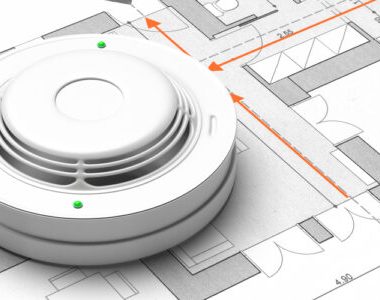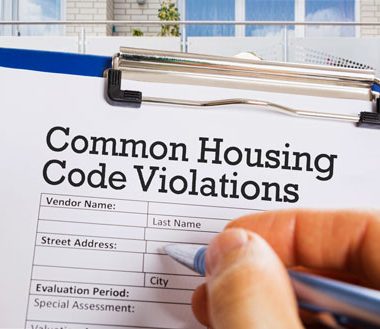The Importance of Building Codes
Building codes are critical for the safety and efficiency of communities. Established rules and regulations regarding the construction of buildings helps protect property owners from potential health and safety risks. From providing basic structural stability to allowing residents to have efficient and cost-effective energy, building codes ensure that our structures are safe and comfortable for us to live in.
What are Building Codes?
Building codes are uniform standards for the construction of buildings and other related structures. They are based on laws established at the federal, state or municipal levels, and enforced through the local authority. Building codes are regularly updated to remain current with changing materials, techniques, safety concerns and energy consumption regulation.
Purpose of Building Codes
The purpose of building codes is to ensure the safety and health of the public. They establish reasonable and uniform standards that building creators must comply with in the design and construction of buildings. Strict adherence to building codes and regulations ensures that projects are safe and being built to the highest safety standards.
Benefits of Building Codes
Building codes offer a variety of benefits for both the resident and the builder.
Safety:
The most important benefit of building codes is safety. Building codes are in place in order to ensure that buildings are built to provide the highest safety standards for the inhabitants. This protects them from potential dangers such as fires, structural failure, electrocution, gas leaks, and other potential accidental events from occurring and resulting in personal injury or death.
Disaster resilience:
Building codes also provide additional protection in the event of disasters such as earthquakes, floods, or wind storms. By having the higher safety standards in place, the buildings are better equipped to withstand the rigors of Mother Nature. This could potentially save the lives of those inside.
Efficiency:
Building codes also have the benefit of increasing the efficiency of structures. The regulations that are in place ensure that things such as insulation, air sealing, and windows are installed correctly and efficiently. This leads to cost savings in the long run as it cuts down on energy costs and consumption.
Durability:
Having the correct building codes in place also ensures that the structure is built to last. This reduces the costs associated with repairing or replacing components or entire structures due to using codes and techniques that weren’t designed for long-term use.
Types of Building Codes
There are a few different types of building, all based on the specific needs of the area.
Structural Code:
A structure code establishes rules and regulations for the design and construction of structures such as buildings and bridges in order to ensure maximum safety for the occupants.
Electrical Code:
An electrical code establishes standards in the design and installation of electrical systems. The code ensures that the systems are operated safely while also being cost effective.
Plumbing Code:
A plumbing code is set up to ensure that plumbing systems are installed properly and securely. Plumbing codes are important for ensuring that the water supply and drainage systems meet the necessary standards.
Fire Code:
Fire codes are designed to ensure the safety of buildings in the event of a fire. They set standards for fire protection, such as the installation of smoke detectors, sprinkler systems, and fire escapes.
Enforcement of Building Codes
Building codes are typically enforced and overseen by the local building authority. They inspect the project to ensure that the safety standards have been met and that the structure is safe and livable. In certain cases, an architect may be employed to sign off on the project to ensure that the builder has met all of the applicable codes and regulations.
Conclusion
In conclusion, building codes are essential for the safety and efficiency of communities. By setting a universal standard in building construction, it helps ensure the safety of the inhabitants as well as potentially saving money in energy costs over time. Building codes are regularly updated to remain current with changing materials and techniques. It is important for those involved in the construction process to be sure to adhere to these codes and regulations in order to ensure the safety and longevity of the structure. The importance of building codes cannot be overlooked, they are essential for providing a safe and secure environment for the citizens of our communities.
Building codes are essential for the safety and efficiency of communities and must be strictly followed during construction. There are a variety of building codes, each with their own purpose and all based on different needs. Building codes ensure that structures are built with maximum safety in mind, as well as making them energy efficient. Adhering to building codes will help to provide a safe and secure environment for all involved.
What are the different types of building codes?
1. International Building Code (IBC)
2. National Fire Protection Association (NFPA) codes
3. American Society of Civil Engineers (ASCE) codes
4. American National Standards Institute (ANSI) codes
5. Uniform Building Code (UBC)
6. Energy Codes
7. Accessibility/Universal Design Codes
8. Plumbing Codes
9. Electrical Codes
10. roof-covering Codes
11. Mechanical Codes
12. Existing Building Codes
13. Property Maintenance Codes
14. Residential Building Codes
15. Historic Building Preservation Code





